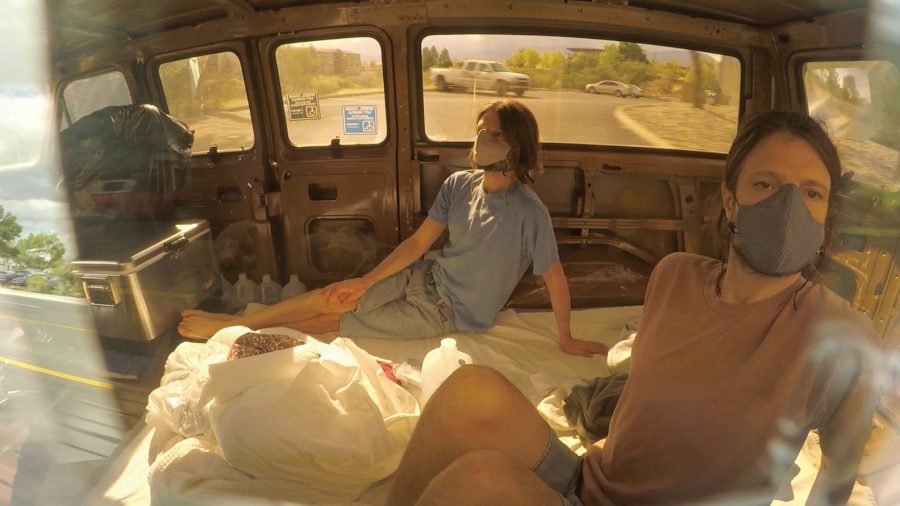Tribeca 2017: ‘Sensitives’ Documentary as Hyper-aware as Its Subjects
“The Sensitives” follows the lives of people with chemical and electromagnetic hypersensitivity, where victims can have debilitating reactions to exposure to even the slightest artificial fragrance or electromagnetic radiation. The documentary required extensive precautions to preserve the health of the victims.
April 25, 2017
Complaints about cellphones have become ubiquitous of late — millennials purportedly won’t put them down, they’re ruining our love lives and some even argue that they’re interfering with our health care. In a world where it’s nearly impossible to operate as an independent adult without a phone, the devices are held with as much disdain as they are praise.
But for some people, the problems don’t end — or don’t even begin — with the way cell phones affect our interactions. For some, cell phones and any other device that emits electromagnetic waves, like laptops or digital cameras, make them physically ill. There’s not an official word for it within the medical community, but within the community of the afflicted, it’s called Electromagnetic Hypersensitivity. It often, though not always, goes along with chemical sensitivity, where the afflicted are hypersensitive to fragrances and chemicals commonly found in everything from detergents to perfumes to glues and plastics used to manufacture and package products. Acceptance within the medical community ranges from denial to insisting it’s all in the victims’ heads to understanding but an inability to do anything past treat the symptoms, since the conditions are so under-researched.
Drew Xanthopoulos’ documentary “The Sensitives” delves into the purposely isolated world of those with chemical and electronic sensitivities. The film follows three sets of victims. The first, Susie, is a woman who left San Francisco for the safe aridity of Arizona and lives alone with her dog, Blackie. The second set includes Sam, Nathan and their mother, Karen, who spend their time in a small concrete home in rural Arizona — they have sensitivities and all struggle to exist independently after their caretaker, Karen’s mother, passes away. The final victim is Joe, whose sensitivities are becoming an unbearable burden as he tries to coexist with his family without forcing them to leave their suburban home, even if it means he moves to a special sensitivity-safe community down in Texas.
“The Sensitives” deserves acclaim on two counts — first, that Xanthopoulos did all of the directing and filming himself and still managed to create a visually stunning project. Filming was a delicate process, since exposure even to the detergent he used for laundry could cause bloody stools, loss of motor control and other painful and long-lasting symptoms in his subjects. He had to specially wash and prepare himself at least three weeks before filming, and he undertook the utmost care when interacting with them. Having just one camera and not using wireless mics that would emit painful electromagnetic waves also made it difficult, and still the film was replete with intimate shots of its subjects and stunning b-roll of the Arizona sky, emphasizing his subjects’ humanity and simultaneous isolation.
Second, Xanthopoulos deserves praise for exactly that humanity that he allows his subjects. They are more than their diseases and afflictions, and each of them is treated as such. Xanthopoulos’ empathy is incredible, and desperately needed in a world that is inarguably built for the able-bodied.
Equally of note is Sam’s and Nathan’s songwriting — the two earn income as country songwriters, and all of the songs in the film’s soundtrack were written by Sam and his family. Sam strikes a particular chord when he explains why he doesn’t write about his illness.
“What’s more interesting, the cage or the prisoner?”
Email Hailey Nuthals at [email protected].
























































































































































